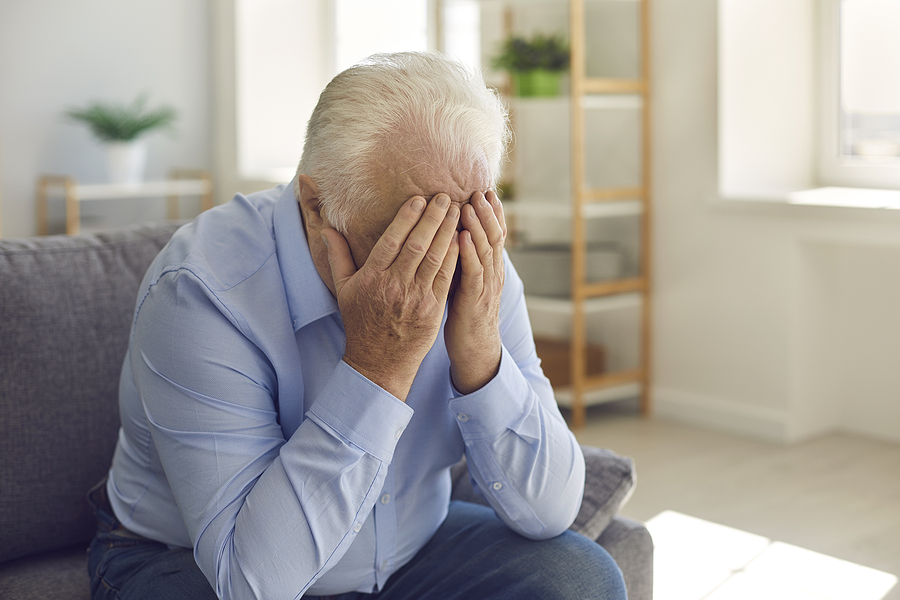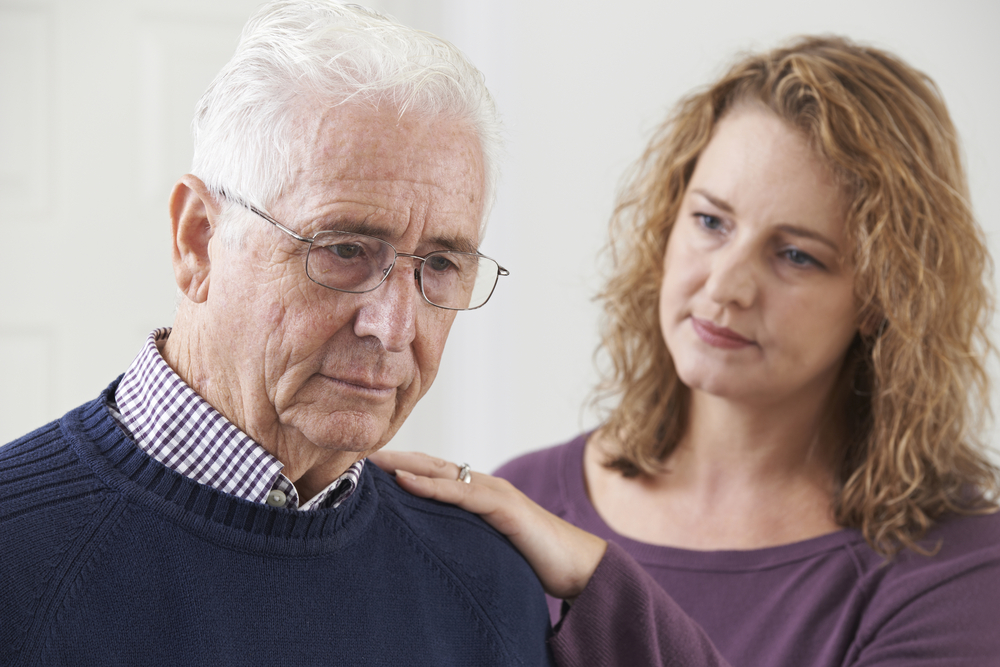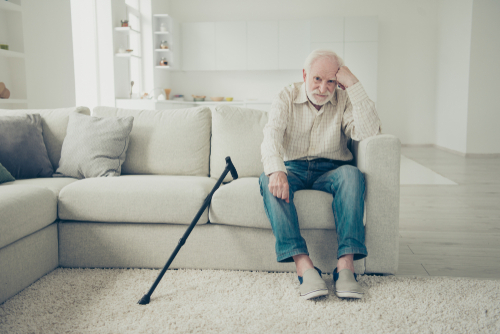How to Help the Elderly Cope with Grief
Category:

Grief is a challenging emotion with which to cope at any age. The sense of loss and feelings of loneliness that often accompany grief can be overwhelming. While grief is often associated with death and loss of a loved one, it is an emotion that can follow any major life change. Grief in elderly adults, along with the feelings of loss and loneliness that often accompany it, can become overwhelming as so many things in an elderly person’s life can change so quickly. As caregivers and family members of elderly adults, it is important to become familiar with signs and symptoms of grief in the elderly, and know how to help before the grief transitions into depression.
Signs of Grief and Loss in the Elderly
By knowing and recognizing the signs of grief in a loved one, you can help them cope and prevent the grief from becoming depression. Some symptoms of grief include:
-
Sadness and mourning
-
Fatigue and low energy
-
Loss of appetite
-
Inability to sleep
-
Poor concentration
-
Mild feelings of guilt
Download a Free Guide to Coping with Grief and Loss
An elderly person’s feelings and behavior may change as they move through the five stages of grief. These include:
-
Denial – the first stage of grief helps a person survive a loss. It is a normal reaction to normalize overwhelming feelings.
-
Anger – another coping mechanism, anger moves the pain of grief away from the person grieving and onto anyone or anything else, including the loss itself.
-
Bargaining – an attempt to control an uncontrollable situation, or change the outcome and delay the pain
-
Depression – sadness, and regret related to the loss.
-
Acceptance – while not necessarily a return to happiness, this stage does mark a withdrawal and calm while coping with loss.
Moving through the stages of grief, and experiencing symptoms of grief, are normal for the first few months after a loss, whether it be a death or a major life change. If the grief continues or worsens after these first few months, it can morph into a disorder known as complicated grief. According to the Mayo Clinic, complicated grief in the elderly means the painful emotions are so long-lasting and severe that the elderly person has trouble recovering from the loss and resuming their own life. Signs of complicated grief include:
-
Intense sorrow, pain, and rumination over your loss
-
Numbness or detachment
-
Bitterness over the loss
-
Having trouble carrying out normal routines
-
Isolating from others and withdrawing from social functions
How to Help the Elderly Cope with Grief
Seeing your family member or loved one experiencing the pain of grief is hard. While you can’t take the pain away or change the circumstances that cause grief, there are things you can do to help.
-
Reach out and let your loved one know you care and are thinking of them. Don’t worry that by offering comfort you will “remind them” of their grief. They’re not going to forget, and the company and knowledge that someone cares will actually be helpful.
-
Acknowledge the situation. Avoid saying things like, “I know how you feel” or “it could be worse.” Instead say things like, “I know this must be difficult.”
-
Just listen. Resist the temptation to try to “solve” an unsolvable problem. Allow the grieving person to express their emotions without impatience or judgement.
If you feel your loved one may be experiencing complicated grief or depression, don’t be afraid to talk to their doctor. They can offer help, whether it is a referral to a counselor or medication to ease the heaviest feelings.
We will all experience grief in our lifetimes, while both young and old. Knowing how to recognize the signs and help our friends and loved ones work through grief in a healthy manner will be beneficial to everyone.
Subscribe
Date: October 20, 2020
Category:


